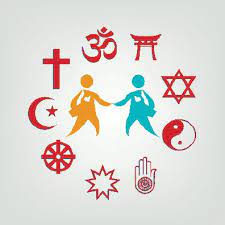By Matters India Reporter
Mumbai, Oct 14, 2023: A discussion on “Faith Reflections on meeting challenges to freedom of religion” has brought together 70 scholars and participants from diverse religious backgrounds to explore the concept of freedom of religion and its relevance in today’s society.
The Interfaith Solidarity Council organized the October 14 event at Anjuman E Islam in the western Indian city of Mumbai.
The discussion examined and affirmed the various traditions and messages associated with freedom of religion as understood within different faiths. Distinguished scholars representing Hinduism, Christianity, Islam, Jainism, Zoroastrianism, Sikhism, Baha’i faith and Buddhism shared their perspectives, each shaped by the teachings and beliefs of their respective religions.
Irfan Engineer, director of the Centre for Study of Society and Secularism who served as the moderator, stressed the imperative need to collectively explore the pluralistic traditions inherent in our own religions and derive inspiration from them to foster peaceful coexistence.
Sadguru Mangeshda underscored the values of critical thinking and love, drawing on the teachings of Swami Vivekananda as a source of inspiration. Salim Khan provided insights from the Quran to address the coexistence of different faiths within our society and the divine intention behind this diversity.
Father S. M Michael emphasized the belief that God created humans in His own likeness and image, granting them the freedom to choose their spiritual paths. Roshni Shenazz highlighted the Zoroastrian faith’s promotion of freedom and responsibility, allowing for the dynamic interpretation of religious principles according to the needs of the times.
Seema Indorewala highlighted that Baha’i faith propounds oneness of God, religion and mankind. Its founder, Baha’u’llah, said that the earth is one country and mankind its citizens.
Gurjinder Singh conveyed the profound message of Sikhism, where truth is paramount, but the virtue of humanity and service to all, regardless of religious affiliation, takes precedence. Manish Modi expounded on Jainism’s core belief in the universal law of receiving what one gives. Sunil Kamble shed light on Buddhism’s principles of equality and non-discrimination, firmly grounded in the concept of liberty.
The participants stressed the critical importance of safeguarding freedom of religion for all citizens without discrimination. They reiterated that violence has no place within any religion. The participants collectively affirmed their commitment to the principles of freedom and inclusivity within their respective religious traditions. All the participants unambiguously condemned any act of terror under the name of religion. The participants also affirmed their commitment and the need to stand in solidarity with any individual or religious groups which face violations of their freedom of religion.
The organizers said the event served as a platform for fostering interfaith dialogue, celebrating shared values of freedom, love, and mutual respect, and advocating for harmonious relations among diverse religious communities.
It reinforced the idea that, regardless of our individual beliefs, we can coexist peacefully and embrace the principles of freedom of religion for all. One of the solutions proposed towards a peaceful society was to disseminate the teachings of liberal traditions within each religion. The platform could explore ways to engage with the textbooks in school curriculum to promote freedom of religion was one of the suggestions


The continent of Asia is home to all major religions of the world. Bridge-building among people of goodwill is an act in worldmaking.